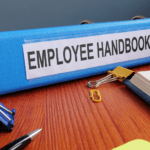Title IX and EEOC rights for transgendered individuals have been a prominent topic in the news recently. No matter your personal opinion, as a business owner, it is important to know the law to protect yourself and your business.
EEOC
The Equal Employment Opportunity Commission protects employees from discrimination, including discrimination based on gender identity or sexual orientation. This protection applies no matter the local or state laws. While Title VII does not specifically include gender identity or sexual orientation in the lists of identified protected classes, the commission (along with the Supreme Court) interprets the statute’s sex discrimination provision to include prohibiting discrimination based upon gender identity.
Here are a few examples, but they are not at all inclusive:
-
- Failing to hire a person because they are transgendered or planning to make a gender transition
- Denying an employee access to the restroom that corresponds with the gender he or she identifies
- Harassing an employee by failing to use the pronoun or name by which they identify
- Failing to provide benefits to an employee and their family based upon their gender or the gender by which they identify
Here in Nebraska, Senator Adam Morfeld introduced LB 586 this year to amend Statutes of Nebraska, and sections 29-401 and 48-1117, Revised Statutes Cumulative Supplement, 2014; to prohibit discrimination based upon sexual orientation, gender identity, sex, and disability as prescribed; to change the Nebraska Fair Employment Practice Act; to define terms; to harmonize provisions; and to repeal the original sections. The bill was indefinitely postponed in April.
TITLE IX
Also in April, the 4th Circuit U. S. Court of Appeals ruled that Title IX protections apply to transgendered individuals. Their ruling also stated that denying access to the restroom corresponding to a person’s identified gender is a violation of Title IX.
In addition, the court held that Title IX applies to educational programs and activities that receive federal funding, and transgendered persons are a protected class under the Act. Schools, generally, must recognize transgender students according to the gender with which they identify. Furthermore, President Obama declared that not allowing a transgendered person to use the restroom of the gender with which they identify was a violation of equality under Title IX.
Nebraska leaders are currently not of the same view as the President. In May, Governor Ricketts urged local school boards and the State Board of Education to reject the federal guidance, but as governor he does not have the power to set policy for schools. The Attorney General, Doug Petersen, is also opposed to the federal stance and authored a letter to federal officials stating his office would do “everything in its power” to resist them.
The basis for the opposition is that the guidelines would unconstitutionally broaden Title IX. A vote was held in June by the Nebraska Board of Education that ended with a failed resolution. The proposal was for the matter to be determined by local districts, but a tie vote deemed the resolution a failure. The U.S. Department of Education has indicated that they will pull federal school funding to states that do not leave the bathroom choice up to the student. The Nebraska Board of Education will be meeting again in August.
Employee and business laws are ever changing; it is important to work with an experienced attorney to protect your business. If you have any questions, or would like to meet with one of our trusted lawyers, please call 402-339-9550 or email me at miller@adamsandsullivan.com

Ms. Miller has been an attorney since 2004 and worked ten years with Amoni Law Offices, P.C. in Aurora, Illinois prior to moving to Omaha and joining Adams & Sullivan. She was Lead Counsel in arbitrations and mediations for personal injury files, and served as Co-Counsel for a large, regional bank conducting commercial and residential foreclosure litigation, and real estate dealings. Her current practice focuses on employment law, personal injury law and litigation.





